polymers chemistry in action Top most best online video lectures preparations notes for class 12 chemistry CBSE IIT-JEE NEET exam +2/12thstd standard intermediate PUC college exams preparations tips and tricks all questions with solutions
polymers
polyalkenes
polyethylene
polystyrene
synthetic rubbers
buna rubbers
buna-s
properties and uses
buna-n
properties and uses
butyl rubbers
condensation polymers
polyesters
polyamides
nylon-66
properties and uses
formaldehyde resins
polymers and plastics
polymers applications
polymers and monomers
polymers based on molecular forces
polymers hydrocarbons
polymers organic chemistry
classification of polymers
types of polymers
synthesis of polymers
thermoplastic polymers
Reactive and Functional Polymers
Carbohydrate Polymers
Polymers for Advanced Technologies
Polymers and Polymer Composites
Designed Monomers and Polymers
Fibers and Polymers
website: http://www.wikitechy.com/
cbse ncert cisce nios ICSE wbsc WBBSE IB bse igcsen icsce aisse hslc aicte mpbse isc sslc jkbose jksbse cce hbse matric GSHSEB isc state board scert nenbse seba cgbse samacheer online school videos and lectures
Higher secondary school +2 12thstd standard
Andhra Pradesh (Secondary Intermediate) –inter college or junior college 2nd year
Bihar (School Intermediate)-PUC 2 nd year HSE
Meghalaya Mizoram Nagaland Odisha Assam Kerala Madhya Pradesh Maharashtra Manipur (Secondary Higher Secondary)
Council for the Indian School Certificate Examinations
the Central Board for Secondary Education
the National Institute of Open Schooling
Pre-primary
Primary
Middle/ upper-primary
Senior secondary
inter college
Board of Secondary Education
CBSE Class 12 Chemistry , CBSE class 12 , Class +2 Chemistry,AIIMS,CMC-Vellore ,CMC-Ludhiana,COMED-K,JIPMER,Manipal (MBBS),MGIMS-Wardha,AMU (MBBS),BHU Medical,BITSAT ,COMED-K,IPU-CET (B.Tech),Manipal (B. Tech),VITEEE,AMU (B. Tech),NDA Entrance with PCM (MPC),All India Engineering Entrance Exam with PCM (MPC).State Level Engineering Entrance Exams,intermediate chemistry,|neetexam,Joint Entrance Examination (JEE) Main/Advanced,,AIPMT,AIPVT,Indian Maritime University Common Entrance Test,Indian Navy B.Tech Entry Scheme.NEST / NDA / RIE CEE Integrated B Ed / GGS IP University CET / CU CET / BHU UET / HSEE / TISS BAT / Symbiosis University SET , Delhi University B El Ed Entrance CEE , UPSEE ,RIE CEE |JEE Mains / JEE Advanced / BITSAT / VITEEE / MH CET / Architecture B Arch JEE / NATA / B Arch JamiaMliaIslamia / IISER / Chennai Mathematical Institute / Statistics Entrance Exams/ NDRI Karnal / NIFTEM, NEET / AIIMS MBBS / JIPMER / AIPVT / CMC Vellore Medical Entrance test / CET Karnataka / EAMCET / Agriculture Science AIEEA – UG / Biology Entrance Exams|Punjab University entrance for B Sc Applied Biological Sciences PU CET / CET for admission at SVNIRTAR and NIOH / IPH |Hotel Management / Culinary Arts Entrance Exams NCHMCT / E CHAT / PUTHAT / Indian Culinary Institute Tirupati |Law Entrance Exams CLAT / AILET / LSAT India / Punjab University Law Entrance Test| Design Entrance Exams / NIFT / NID | Kurukshetra / UCEED / CEPT / SUPVA Rohtak / MITID DAT / Pearl Academy Admission / College of Art, Delhi University / Apeejay Institute of Design / FDDI Noida |Entrance Chartered Accountancy Entrance Exam / CPT Management Entrance Tests IPM IIM Indore / Delhi University BMS BBE BFIA entrance JAT
ISRO Officer Recruitment Preparation |State Bank Of India SO Jobs | Staff selection Commission (SSC) |SSC Upper Division Clerk Exam |Union Public Service Commission-UPSC Online Video Lectures
tamilnadu -tnpsc group 1| tnpsc group 2 tnpsc group 4
Andhra Pradesh -APPSC group 1 | APPSC group 2 | APPSC group 4
Arunachal Pradesh PSC group 1 | PSC group 2 | PSC group 4
Bihar -BSSC group 1 | BSSC group 2 |BSSC group 4
Gujarat -GPSC group 1 | GPSC group 2 | GPSC group 4
Jammu & Kashmir -JKPSC group 1 | JKPSC group 2 | JKPSC group 4
Jharkhand -JSSC group 1 | JSSC group 2 | JSSC group 4
Madhya Pradesh -MPPSC group 1 | MPPSC group 2 | MPPSC group 4
Maharashtra -MPSC group 1 | MPSC group 2 | MPSC group 4
Odisha -OPSC group 1 | OPSC group 2 | OPSC group 4
Punjab -PPSC group 1 | PPSC group 2 | PPSC group 4
Uttar Pradesh -UPPSC group 1 | UPPSC group 2 | UPPSC group 4
West Bengal -WBSSC group 1 | WBSSC group 2 | WBSSC group 4
Karnataka -KPSC group 1 | group 2 | group 4
Kerala PSC group 1 | group 2 | group 4
Rajasthan -RPSC group 1 | RPSC group 2 | RPSC group 4
public service commission exam
source











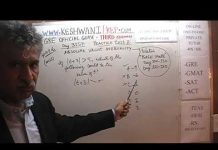

![CY_GATE_2019_PHYSICAL_SPECTROSCOPY_[ELECTRONIC_BASIC]_All IN ONE_[Short_Trick]_2018-19_PART_1ST - Videos](https://trends.edugorilla.com/wp-content/uploads/sites/8/2018/08/cy_gate_2019_physical_spectroscopy_electronic_basic_all-in-one_short_trick_2018-19_part_1st-218x150.jpg)
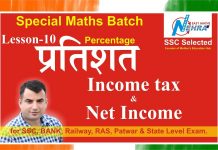


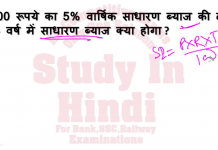
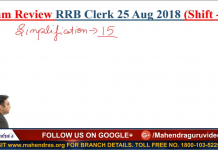

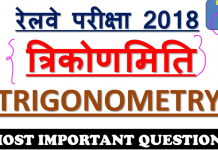
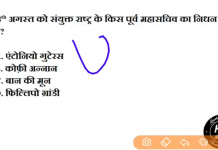
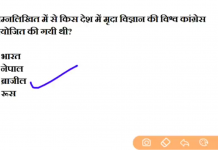
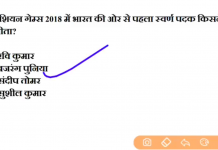




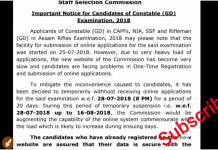
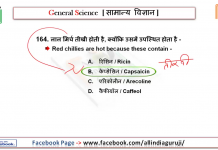


![24 August 2018 – The Indian Express Newspaper Analysis हिंदी में – [UPSC/SSC/IBPS] Current affairs - Videos](https://trends.edugorilla.com/wp-content/uploads/sites/8/2018/08/a520-218x150.png)
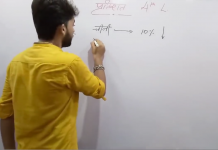



The home for the most innovative and exciting polymer chemistry, with an emphasis on polymer synthesis
A polymer (/ˈpɒlᵻmər/; Greek poly-, "many" + -mer, "parts") is a large molecule, or macromolecule, composed of many repeated subunits. Because of their broad range of properties, both synthetic and natural polymers play an essential and ubiquitous role in everyday life.
Poly- means "many" and -mer means "part" or "segment". Mono means "one". So, monomers are those itty bitty molecules that can join together to make a long polymer chain
a substance which has a molecular structure built up chiefly or completely from a large number of similar units bonded together, e.g. many synthetic organic materials used as plastics and resins.
The repeating unit of the polymer polypropylene. Polymerization is the process of combining many small molecules known as monomers into a covalently bonded chain or network. During the polymerization process, some chemical groups may be lost from each monomer.
a substance which has a molecular structure built up chiefly or completely from a large number of similar units bonded together, e.g. many synthetic organic materials used as plastics and resins.
The repeating unit of the polymer polypropylene. Polymerization is the process of combining many small molecules known as monomers into a covalently bonded chain or network. During the polymerization process, some chemical groups may be lost from each monomer.
Polymers are huge molecules that are encountered in nature as well as in our modern technology.
Poly- means "many" and -mer means "part" or "segment". Mono means "one". So, monomers are those itty bitty molecules that can join together to make a long polymer chain. This is MONOMER.
a substance which has a molecular structure built up chiefly or completely from a large number of similar units bonded together, e.g. many synthetic organic materials used as plastics and resins.
]
The repeating unit of the polymer polypropylene. Polymerization is the process of combining many small molecules known as monomers into a covalently bonded chain or network. During the polymerization process, some chemical groups may be lost from each monomer.
Polymers are huge molecules that are encountered in nature as well as in our modern technology. This lesson introduces students to polymers, their…
POLYMERS. Polymers are substances whose molecules have high molar masses and are composed of a large number of repeating units. There are both …
Chemistry in Action (Polymers) Polymers • Polymers are macromolecules formed by repeated joining of many small molecules. Polymerisation is the process of joining together many small molecules
Issuu is a digital publishing platform that makes it simple to publish magazines, catalogs, newspapers, books, and more online. Easily share your publications
Polymers are of two types: Natural polymeric materials such as shellac, amber, wool, silk and natural rubber have been used for centuries